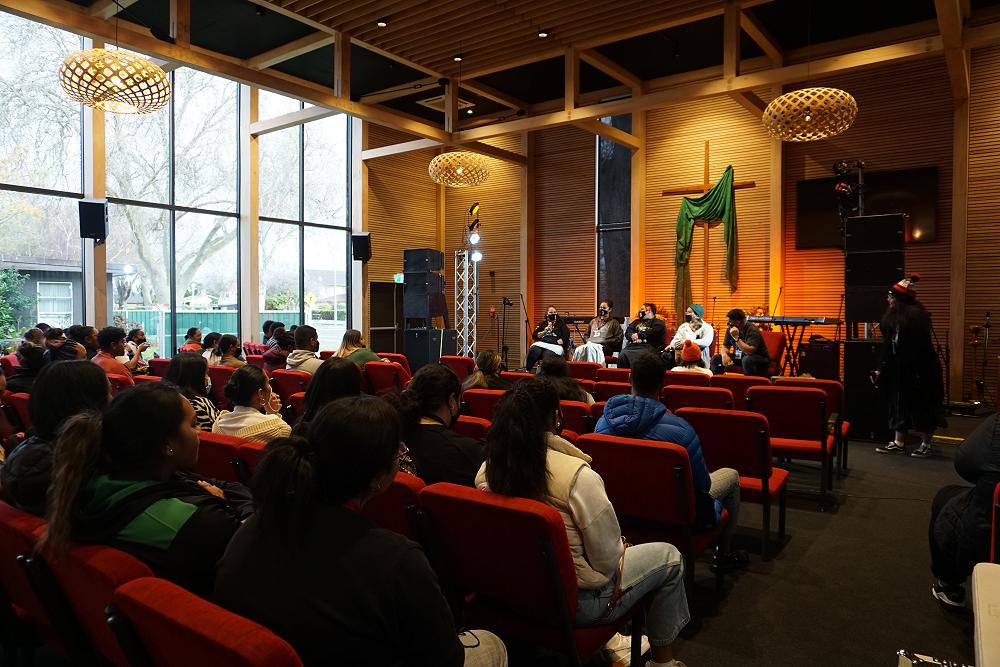
Ministry Thrives When We Look After Our Leaders
As a young youth leader in my local church, I was sometimes given a massive amount of work to do for little reward. At the time I was studying full time, working two part-time jobs, being a youth and wordship leader, on the Sound and AV team and also having other life and social commitments. The pressures of needing to balance time and prioritise responsibilities was difficult to say the least.
The reality is that most people just simply don’t have the time to give full effort to something that they, like the vast majority across our Haahi, do out of a volunteering spirit.
In my work across the breadth of Te Haahi, I have regularly come across children and youth ministry leaders who are simply spread too thin. Sadly, churches are often unforgiving and unrelenting in what they require of a leader. Leaders are expected to offer some kind of effective ministry and service, but not given adequate time, resources (including financial) and pastoral support that might give them an opportunity to offer their best. Even when they thrive and are successful, this is not a healthy long term, sustainable model by which one should be working and serving. This isn’t just a children and youth ministry problem, I should point out – it is one that affects all areas of church life, especially when the majority of our people give of their time freely and generously. However, it is often children and youth ministry that suffers the most from this reality, with many churches running leaders, and by association ministries, into the ground – long before they reach their full potential.
MCNZ belongs to an ecumenical network of national youth ministry leaders. This network, consisting of national coordinators from Anglican, Presbyterian, Baptist, Brethren, Wesleyan, Assembly of God, Salvation Army and occasionally Catholic, work collaboratively across the Body of Christ to support youth ministry across each of our contexts. Early on we developed a resource called Sustainable Practices for Youth Ministry. This resource, that includes a volunteer and paid worker edition, is an attempt to ensure that youth leaders in local parish settings receive an adequate level of support and care that gives them every opportunity to carry out a successful ministry in their parish. I believe that this resource is a vital one that is being criminally underutilized in our churches today.
The resource outlines seven commitments that a parish, either via their parish council or responsible supervisor, will practice in the managing of a key volunteer or paid leader in their church community. These commitments are:
1. We will pray and spiritually support
2. We will give space for reflection and rest
3. We will provide ongoing training and development
4. We will give freedom to lead
5. We will share responsibility
6. We will provide good management
7. We will celebrate and appreciate
Further information breaks down things to consider in relation to each commitment and practical ways to implement these ideas. Churches then are asked to fill in a worksheet identifying the support it will provide in response, ensuring a level of support and accountability that churches provide and be held to.
I strongly recommend that churches adopt this resource as a key component to managing the well-being of a leader in their context. This resource can be used in the context of children’s ministry as well and there is of course room for it to be further shaped to the context in which we serve. The key point is that, if we are to seriously consider the importance of ministry to young people in our Haahi, we must do more to effectively, pastorally, and practically support our leaders. When we make tangible motions towards caring for our leaders, we enhance the chances of seeing our ministries thrive and grow – over a long and fruitful period of time.
I urge you to download this FREE resource by visiting www.missionresourcing.org.nz/leadersupport
Tauiwi Children, Youth and Families Ministries (TCYFM) also offer workshops for any synods or parishes interested in implementing Sustainable Practices for Youth Ministry into their context.
